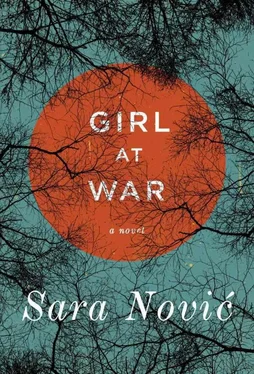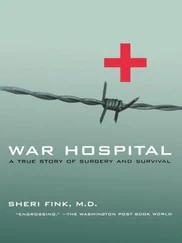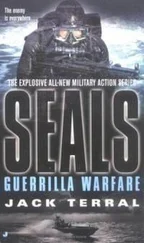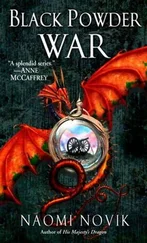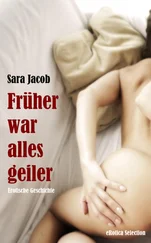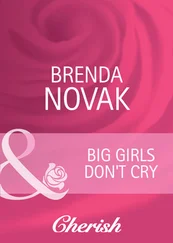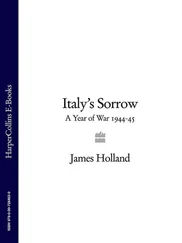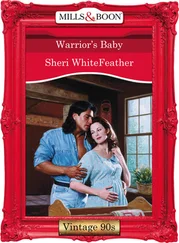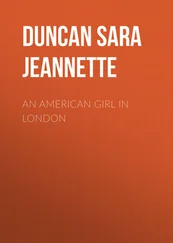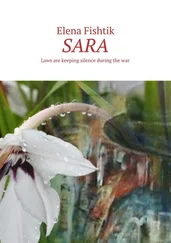One afternoon we had a barbecue in the new backyard. When it got dark, I heard rumbles in the distance.
“It will rain?” I said.
“I don’t think so, kiddo,” Jack said. He was right. The sky was cloudless.
Then the explosions started. Bursts of red and orange clustered along the horizon, followed by a series of violent crackles. I yelped and took off toward the house, brushing past Jack.
“Hey, Ana! Wait!” he said. “It’s just the Fourth of July!” I could not understand what the date had to do with an air raid and was not about to stop and find out. I dove beneath the porch, tucking my head between my knees and covering my neck with my arms like we’d learned to do at school if we didn’t have time to get to the shelter.
“Ana. It’s okay.” He was lying in the grass on his stomach now, his head poked into the crawl space. “It’s the Fourth of July. It’s a celebration of — of the end of our war. They’re just fireworks. For fun.”
“You have a war?”
“No. Well, yeah, but a long time ago. Hundreds of years.” He’d grass-stained the shoulder of his shirt and his glasses were crooked on his face.
“Fireworks?”
“Yeah you know, like, the BOOM”—he mimed a big flash with his hands—“and the pretty colors?”
“We had it. In the New Year’s Eve. Before the war.”
“Yes, right. For celebrating.”
I reached out and straightened his glasses on the bridge of his nose.
“Thanks,” he said. After a while he put his hand on my knee. “So it’s okay. All right?”
I nodded.
“Do you want to go watch?”
I shook my head. “You. Please.”
“Well I’ll just be over there if you change your mind.” I hugged my knees to my chest and watched him return to the party. He ran his hands through his hair and whispered something to Laura, who shot sideways glances back at the porch, and I didn’t come out for the rest of the night.
—
At home I shed my muddy sneakers and stood alone in the kitchen. Little magnetic frames featuring pictures of Rahela and me clung to the refrigerator — her as a baby, crawling, walking, graduating kindergarten; me as a sixth, seventh, eighth grader, teeth in transitional positions.
“Hello?” I said, but no one was there.
I pulled a chair from the table toward the kitchen’s highest cabinet. The file box inside contained the family’s essential documents — marriage certificate, property deed, social security cards, insurance records — the ones it would be the most unpleasant to replace. I pulled a manila envelope from the back of the box, a large, slanted “Ana” scrawled across it in felt tip.
Inside was my expired Yugoslavian passport and my unused American one, the documents asserting that I’d actually been born in New Jersey, and a pair of photographs creased down the middle from when I’d folded them and shoved them in my pocket ten years ago.
The first was a picture of my family in Zagreb the Christmas before the war — me on the table; Rahela, a newborn, asleep in my lap. My mother and father, who’d been engaged in a tussle with the camera’s automatic timer, had run into the frame late and were captured mid-movement, my mother flipping her hair behind her shoulder, my father trying to slip his arm around her waist. I had taken the photo to a camera shop once to see if it could be fixed. No, the man behind the counter had said, there was nothing he could do to unblur them.
The second photo was me on the beach in Tiska, two or three years old, wearing an oversize sweater and squatting down to touch the blue-green water. I stared into the lens with a wide grin. My father had no doubt been behind the camera, and I wondered what he had been saying that made me smile like that.
I looked again at the photo of my parents and tried to picture them more precisely. Maybe Sebald was right, and time and trauma had darkened my memory. Sometimes I could see fragments of them — my mother’s severe cheekbones, my father’s fair, bushy eyebrows — but I could neither zoom in nor cling to these moments of clarity. Long ago I forgot what they smelled like. I could no longer conjure my father’s soap or my mother’s perfume. Slowly, I was forgetting them.
I heard the door slam in a way Laura would not approve of and knew my sister was home. Her backpack still slung over one shoulder, she didn’t notice me; instead she immediately submerged her head in the deepest sector of the freezer and began sorting through generic-brand popsicles. Clutching the photos and the envelope, I shoved the box back on the shelf, closed the cabinet, and jumped down from the chair.
“Hey, Rahela,” I said. She didn’t respond. “Rachel!” She pulled her face up from the icy drawer. “Hi. How was school?” Rahela was in fifth grade now, like I had been when she’d gotten sick.
“I only like the grape ones,” she said, peeling off the iridescent wrapper. “Or Fudgesicles. Miss Tompkins was a real jerk today. She made us do multiplication time tests at recess because Danny Walker wouldn’t stop making armpit fart noises during morning announcements. Hey, what are you doing here? Mom didn’t say you were coming.”
“She doesn’t know,” I said. “I mean, it’s a surprise.”
“Want to come to my soccer game tomorrow? Who’s that?” She pointed her popsicle toward the photo in my hand. Excess syrup dripped from the wrapper.
“No one,” I said. “You’re getting popsicle on your shirt.”
“Crap.” She wet the corner of a dish towel and dabbed at the stain on her chest while I went upstairs to my room. “Don’t tell Mom I said ‘crap’!” Rahela yelled up from the kitchen.
I had attended the same elementary school as Rahela, though it hadn’t been easy to get me enrolled. As summer waned I overheard anxious conversations between Jack and Laura about the upcoming school year. Registering me for school was going to be a problem, I gathered, because I had entered the country on a forged visitor’s visa, and it was hard to sign someone up for school who technically didn’t exist. I watched Laura sit on hold with the INS helpline and pore over photocopies of a policy book from the library, but she wasn’t getting anywhere. One night, frustrated, Jack dumped the entirety of her research directly from the kitchen table into the trash. He didn’t say anything afterward, even when Laura yelled at him, and instead retreated to the basement with the phone, where he stayed until long after I’d been sent to bed.
Jack had uncles. He had uncles who worked construction. He had uncles who owned racetracks. He had garbageman uncles, a fire chief uncle, and even a mayor-of-a-small-town uncle. He had uncles in prison.
They came at night. They wore odd clothes. Uncle Sal dressed all in black — a colossal medallion of Jesus’s face strung from a gold chain and submerged in a tuft of chest hair. Junior wore a red suit with flame-licked shoes one night, a pink one with white snakeskin boots the next. They smoked in the house. Laura gritted her teeth each time they flicked back their lighter caps. They brought Rahela and me presents: gold wristwatches and pocketknives that Laura put on high shelves to “keep until you are old enough.”
The Uncles convened standing up, forming a horseshoe around the kitchen table, half-joking about how no one could stand with his back to the door. They spoke a miry blend of English and Jersey-accented Italian and laughed too loud. Every night, the conversation ended the same way: one of the Uncles would say, “I’ll take care of it for ya,” and clap Jack on the back. They’d go out the front door, which no one else used, slip into their Cadillacs, and drive down the hill with their headlights off, leaving silvery oil stains on our new driveway.
Читать дальше
